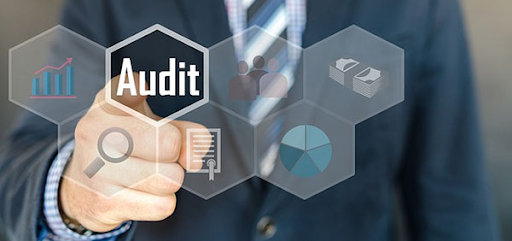Essential Network Security Audits for Sydney Businesses
In today's digital landscape, the need for
robust cybersecurity measures is more critical than ever, especially for businesses in Sydney. With increasing cyber threats ranging from data breaches to ransomware attacks, companies of all sizes face potential risks. Network security audits play a vital role in safeguarding sensitive data, identifying vulnerabilities, and ensuring compliance with data protection regulations. As cybercrime evolves, businesses must conduct regular network security audits to stay ahead of potential threats and maintain a secure IT environment. This article explores the importance of network security audits, their components, and the steps involved in conducting a thorough audit to help Sydney businesses enhance their cybersecurity posture.
Importance of Network Security Audits
Network security audits
are essential for Sydney businesses to maintain a strong cybersecurity framework. An audit is a comprehensive evaluation of a company's IT infrastructure, policies, and practices to identify weaknesses and vulnerabilities. Regular audits can help businesses ensure their systems are up-to-date with the latest security measures and comply with local and international data protection regulations.
Identifying Security Vulnerabilities
One of the primary purposes of a network security audit is to identify security vulnerabilities within an organization's network. Vulnerability assessment is a crucial step in risk management, as it helps uncover weaknesses that hackers or malicious actors could exploit. These vulnerabilities may include outdated software,
misconfigured firewalls, weak passwords, or unpatched systems. By conducting regular audits, businesses in Sydney can proactively identify these issues and take corrective action to strengthen their network defenses. In doing so, they reduce the risk of cyberattacks and potential financial losses associated with data breaches.
Components of a Network Security Audit
A network security audit involves several key components that provide a comprehensive overview of an organization's security posture. Each element is crucial for identifying potential risks and implementing effective security measures.
Tools Used in Network Audits
Various cybersecurity tools and audit software are used to conduct thorough network security audits. These tools are designed to analyze network traffic, detect anomalies, assess system vulnerabilities, and evaluate the effectiveness of existing security controls. Some popular tools include
Nessus,
Nmap,
Wireshark, and
Metasploit. These tools help IT professionals in Sydney identify potential weaknesses, assess risk levels, and recommend appropriate solutions to enhance security.
Conducting a Network Audit: A Step-by-Step Guide
Conducting a network security audit requires a systematic approach to ensure all potential vulnerabilities are identified and addressed. Here's a step-by-step guide on how to perform a comprehensive network security audit for Sydney businesses.
Planning Your Audit Strategy
Planning is the first step in any successful network security audit. This phase involves defining the scope of the audit, setting objectives, and creating an audit checklist. The audit checklist serves as a roadmap, ensuring all critical areas are covered, from reviewing firewall configurations to assessing user access controls. Security planning should also involve identifying the stakeholders, such as IT managers and system administrators, who will participate in the audit process. Proper planning ensures that the audit is conducted efficiently and effectively, providing valuable insights into the organization's security posture.
Execution and Follow-Up
Once the planning phase is complete, the audit team executes the audit by assessing the network infrastructure, systems, and applications. This involves running vulnerability scans, penetration testing, and evaluating security policies and procedures. After the audit is conducted, the team compiles a detailed report outlining the findings, including identified vulnerabilities, potential risks, and recommended remediation steps. Follow-up is crucial to ensure that all issues are addressed promptly, and continuous monitoring is established to maintain a secure network environment.
Case Studies: Benefits of Regular Audits in Sydney
Regular network security audits have proven to be highly beneficial for businesses in Sydney. By conducting audits, organizations can identify potential weaknesses, implement corrective measures, and ultimately strengthen their overall cybersecurity posture. Here are some real-world examples demonstrating the positive impact of regular network audits.
Improvements from Audit Findings
One notable case study involves a medium-sized Sydney-based IT services company that conducted regular network security audits. The audits revealed several areas for improvement, including outdated software, weak passwords, and insufficient access controls. By addressing these vulnerabilities, the company significantly reduced its risk of cyberattacks and data breaches. The audit also highlighted the need for employee cybersecurity training, leading to a more security-conscious workforce and further enhancing the company's cybersecurity resilience.
Another example involves a healthcare provider in Sydney that faced strict compliance requirements due to handling sensitive patient data. Regular network security audits helped the organization identify compliance gaps and vulnerabilities in its network. As a result, they implemented robust security controls and encryption measures, ensuring they met all regulatory requirements and protected patient information from unauthorized access.
Conclusion
In today's digital era, network security audits are a critical component of any Sydney business's cybersecurity strategy. These audits help organizations identify vulnerabilities, ensure compliance with data protection regulations, and safeguard valuable business assets and data. By integrating regular network security audits into their overall security plan, Sydney businesses can maintain a resilient cybersecurity posture, mitigate risks, and protect themselves against evolving cyber threats. If your business is looking to enhance its cybersecurity measures, consider conducting regular network security audits to stay one step ahead of potential risks and secure your digital future.
Investing in regular network security audits not only strengthens your business's cybersecurity framework but also builds trust with clients and partners, demonstrating a commitment to data protection and privacy. As cyber threats continue to grow, don't wait until it's too late—prioritize network security audits and safeguard your Sydney business today.
FAQs About Network Security Audits
How often should a business conduct network security audits?
The frequency of network security audits depends on the size of the business, the nature of its data, and the industry regulations it must comply with. Generally, it is recommended that businesses conduct a comprehensive network security audit at least once a year. However, organizations handling sensitive data, such as financial institutions or healthcare providers, may need to perform audits more frequently—every six months or even quarterly. Additionally, any significant changes to the network infrastructure, such as new software installations or system upgrades, should prompt an immediate audit to ensure continued security.
What are the common findings in network security audits?
Common findings in network security audits often include outdated software, unpatched systems, weak passwords, and misconfigured firewalls. These vulnerabilities can create potential entry points for cybercriminals. Other frequent findings may involve a lack of data encryption, insufficient user access controls, and inadequate monitoring of network traffic. Addressing these weaknesses is essential to reduce the risk of cyber threats and ensure a secure IT environment for businesses in Sydney.





